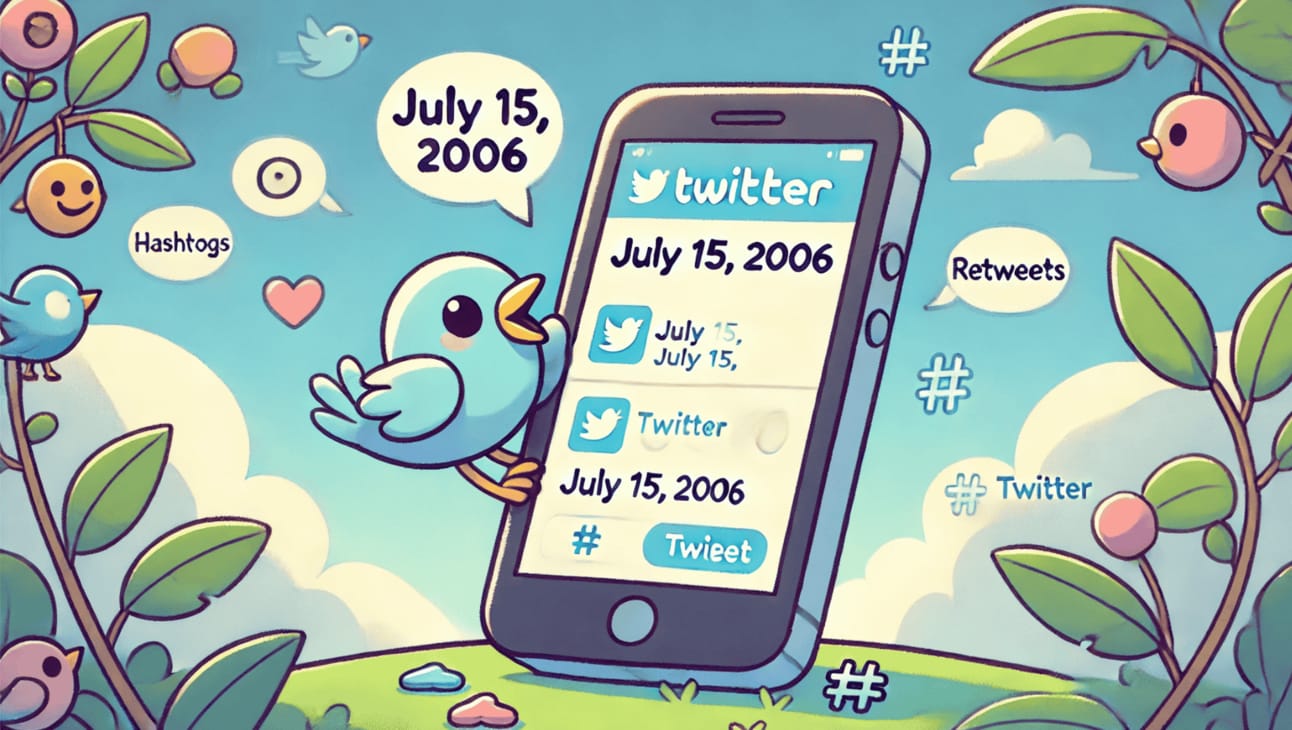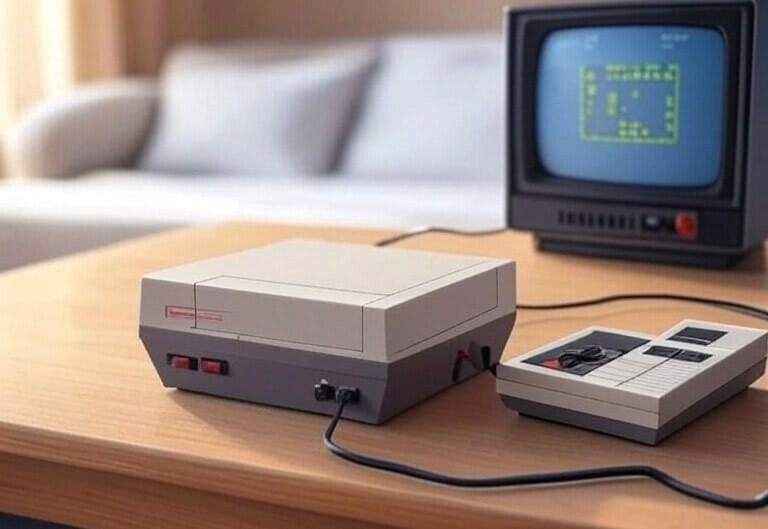- LOL History
- Posts
- 🎤 This Week In History - Freddie Mercury Performs At Live Aid
🎤 This Week In History - Freddie Mercury Performs At Live Aid
The week of July. 13 - July. 19 throughout history.

Welcome back History Nerds,
What a wild week in history we’ve got in store for you today. From the day Live Aid rocked the world, to the introduction of the NES in Japan. Thankfully there’s no depressing history for you to learn about this week, but make sure you tune in again next week because I’m sure there will be more to satisfy the sad itch. If you enjoy this week’s edition of the LOL History Newsletter, make sure you send us a response back with what you liked and what you want to see in the future.
Did You Know? On April 1, 1957, the BBC aired a serious news report showing Swiss farmers harvesting spaghetti from trees—and thousands of viewers believed it. Some even called in asking how to grow their own spaghetti plants. It was an April Fools' prank so convincing, it’s still considered one of the greatest hoaxes in TV history. Moral of the story? Never underestimate British accents and pasta.
During Your History Lesson You’ll Learn About:
Fast, Far, and Freezing: The Pluto Flyby of 2015
How 140 Characters Changed the World
From Plastic Box to Powerhouse: Nintendo’s 1983 NES
Live Aid Rocks The World For A Cause

3 Billion Miles Later: NASA’s Epic Pluto Drive-By

On July 14, 2015, space got a little more personal when NASA’s New Horizons spacecraft—after a nine-year, three-billion-mile trek—zipped past Pluto and gave Earthlings their very first close-up look at the icy, far-flung dwarf planet. For the first time since its 1930 discovery, Pluto was more than a smudge in the telescope—it had mountains, a heart-shaped plain, and attitude. New Horizons didn’t land or orbit; it just swung by at 30,800 miles per hour, snapped a boatload of photos, gathered some data, and kept on cruising deeper into the Kuiper Belt like a cosmic tourist on a tight schedule.
Up until that flyby, Pluto had been kind of the loner of the solar system. It got demoted to dwarf planet status in 2006—ouch—but New Horizons brought it back into the spotlight, at least for a while. The images beamed back were crisp, detailed, and weirdly beautiful: frozen plains, nitrogen glaciers, possible cryovolcanoes, and a big bright region shaped suspiciously like a Valentine. Scientists named that region “Tombaugh Regio,” after Clyde Tombaugh, the guy who first spotted Pluto in 1930. Nice touch.
The flyby gave scientists a data goldmine: insights into Pluto’s atmosphere, surface composition, and even its moons (Charon got some glamour shots too). Turns out Pluto isn’t just a boring rock in deep space—it’s geologically active, layered with mystery, and way more complex than anyone expected.
No other spacecraft has visited Pluto, and none are headed there anytime soon. New Horizons was humanity’s first (and maybe only) in-person hello to this distant world. Kind of like meeting a long-lost relative you’d only seen in blurry photos and realizing they’re actually fascinating.
So yeah, on July 14, 2015, Pluto had its moment. No parades, no bell ringing, just a tiny spacecraft hurtling by at breakneck speed, showing us a world we’d only dreamed about. And just like that, Pluto went from pixelated outsider to high-res enigma.

How 140 Characters Changed the World

On July 15, 2006, Twitter officially opened its digital doors to the public. Cofounders Jack Dorsey, Evan Williams, Biz Stone, and Noah Glass had been tinkering with the idea for months, but now anyone could join in and post whatever was on their mind as long as it fit into 140 characters. What started as a quirky “microblogging” tool quickly became a global soapbox for news, jokes, oversharing, and the occasional celebrity meltdown.
In just a few years, Twitter went from startup oddity to world-changing communication tool. It helped break news faster than cable TV, gave rise to viral hashtags, and launched countless memes into internet immortality. Politicians used it to rally (or rant), fans followed their heroes in real time, and everyday people suddenly had a megaphone. Like it or not, July 15, 2006, marked the day the world learned to talk in tweets and we’ve been scrolling ever since.

Do You Like Answering Trivia Questions In This Newsletter? |

The Day Nintendo Changed Everything

On July 15, 1983, Nintendo quietly released the Family Computer—Famicom for short—in Japan. It didn’t look like much: a red-and-white plastic box with wired controllers and a handful of games. But this unassuming console was about to change everything. At a time when the video game industry was in a nosedive, especially in the U.S., Nintendo bet on tight controls, solid hardware, and games that actually worked. It wasn’t about flashy gimmicks; it was about fun that lasted.
The Famicom stumbled at first—early models had glitches, and sales were slow. But then came Donkey Kong, Mario Bros., Excitebike, and a string of hits that turned the tide. By the following year, it was a phenomenon in Japan. Two years later, it landed in the U.S. as the Nintendo Entertainment System and brought video games back from the dead. No big launch, no fanfare—just a quiet console that ended up reshaping pop culture, one cartridge at a time.

Live Aid Rocks The World For A Cause

On July 13, 1985, music took center stage for a cause bigger than stadium tours or chart-topping singles. Live Aid, a massive benefit concert organized by Bob Geldof and Midge Ure, rocked both Wembley Stadium in London and JFK Stadium in Philadelphia—all to raise money for famine relief in Ethiopia. It wasn’t just a concert—it was a global event. An estimated 1.5 billion people tuned in from 150 countries, watching legends like David Bowie, U2, Madonna, and Elton John perform live across continents.
But let’s be honest: the day belonged to Freddie Mercury. Queen’s 20-minute set at Wembley wasn’t just good it was historic. Mercury, in peak form, commanded 72,000 people like a rock god, belting out hits like “Radio Ga Ga,” “Bohemian Rhapsody,” and “We Are the Champions.” At one point, the entire crowd clapped and sang in perfect sync with him basically turning a benefit concert into a once-in-a-lifetime religious experience. Even Elton John said they “stole the show.”
By the end of the day, millions of dollars had been raised, awareness had skyrocketed, and rock music had actually done something meaningful. Live Aid proved that a well-timed guitar solo (and a killer mustache) could help change the world even if only for a moment.

Grow Your Business by Advertising With Us!
Reach thousands of engaged history nerds who love fun, fascinating, and well-told stories from the past. If you want to get your brand in front of curious, history-loving readers, let’s chat!

See You Next Time!
We hope that you enjoyed this edition of the LOL History newsletter! See you next week!
— Evan & Derek - LOL History Co-Founders